
Chinese medicine has been singing its praises for hundreds of years, but we might be reading too much into our green tea leaves. In our attempts to ward off disease or lose weight, we might be consuming too much of the green liquid. Before you start guzzling down the drink, you should learn how much is too much?
What is Green Tea?
All forms of tea, black, green and oolong, derive from the leaves of the Camellia Sinensis plant. It’s the processing of the leaves that determines the tea’s type. The most common, black tea, is made from fully fermented leaves, while green tea is unfermented leaves.
Originally cultivated in East Asia, the plant grows as a large shrub or tree. The more fermentation the leaves undergo, the lower the polyphenol content, therefore green tea has the highest level and black tea the lowest. Polyphenols provide the tea’s antioxidant effects. Fermentation also increases the caffeine content with black tea containing two to three times the level of green tea.
Rich in vitamins B and C, tea also contains minerals, polyphenols, caffeic acid, fertaric acid, tannins and volatiles. Tea is consumed world-wide as a beverage, as a colouring agent, antioxidant, and an additive. Tea extracts also appear in some cosmetics and pharmaceuticals.

Forms of Green Tea
Consumers can purchase green tea in a variety of forms including leaves, liquid and capsules.
Caffeine-Free Green Tea
For those people concerned about their consumption of caffeine, decaffeinated green tea is available. Caffeine-free supplements are also available.
Caffeine-free green tea has the added benefit of containing higher levels of concentrated polyphenols.
Green Tea Used for the Prevention and Cure of Disease
Green tea has been linked as a possible preventative or treatment of a wide range of diseases and illnesses in recent years.
Researchers believe the catechin, EGCG, could have biological effects that are:
Antioxidative
Antiviral
Anticarcinogenic
Antimutagenic
Anticancer
Anti-inflammation
Anti-obesity, and
Hypolipidemic effects
However, for most of the conditions more research is needed to determine if green tea lives up to the claims. In particular, more human trials are required as much of the current research is limited to animal studies. Results from these studies suggest that green tea can help prevent and treat the following health conditions:
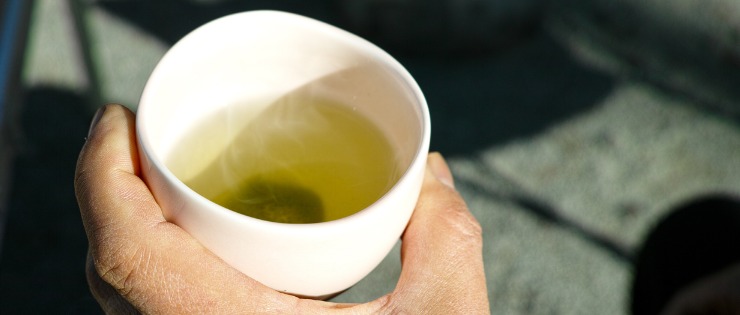
Inflammatory Bowel Disease (IBD)
With no effective cure for IBD ‘s ulcerative colitis and Crohn’s disease, many sufferers try complimentary alternatives to relieve symptoms and prevent further inflammation. Multiple investigations have found green tea’s polyphenols are potent antioxidants that can play a part in inactivating several signalling pathways involved in inflammation.
Diabetes
Obesity is one of the main contributing factors in developing Type 2 diabetes. Many studies look at whether drinking green tea can help with the battle of the bulge and winning the war against Type 2 diabetes, as the condition reaches epidemic proportions in many countries.
A study in Japan found a 33% risk reduction in developing type 2 diabetes amongst those who drank six or more cups of green tea per day, compared to those people who drank less than one cup per week. Clinical studies have shown green tea isn’t effective in controlling hyperglycemia once a patient has Type 2 diabetes.

Cardiovascular Disease
Heart disease is the leading cause of death and hospitalisations in the US and Australia. So researchers are keen to find out if green tea may reduce the incidence.
A controlled trial has shown green tea is effective in decreasing blood pressure, low density lipoprotein cholesterol, oxidative stress, and a marker of chronic inflammation. A standardised capsule of Camellia sinensis compounds (CSC) was used in the double-blind, placebo controlled study with the decreased levels occurring in just three weeks. Another study conducted among 40,530 Japanese adults found that participants who drank more than five cups of green tea per day had a 26% lower risk of death from heart attack or stroke.
Liver Disease
Studies have shown green tea may have preventive and therapeutic effects on liver disease. It’s thought the tea regulates lipid metabolism and reduces accumulation of lipids in the liver. Green tea’s polyphenolic antioxidants may also provide a protective effect against malignant changes in the liver.
However, too much green tea extract can cause liver problems. There is a case report of a woman taking a weight loss supplement that had green tea extract as the major component. A liver biopsy showed marked interface necrosis and inflammation after she complained of abdominal pain and jaundice. Within one month of stopping the extract, her liver tests improved.
Cancer
The effect of green tea has been tested on a wide range of cancers. In some in vitro and in vivo studies, they found green tea to possess some anti-cancer effects. It may help prevent some cancers and to stop the recurrence in some cancer patients.
The flavonoids from green tea were reported to inhibit carcinogenesis, tumor growth, and metastasis in several cancers.
Anticancer chemotherapy drugs given to patients often cause severe side effects including diarrhea, nausea and stomach pain. Green tea has provided relief for some patients.

Breast
In animal studies, EGCG has limited the growth of breast cancer cells by drinking three to four cups per day. Recently harvested green leaves are used so the plant’s natural polyphenols are maximised.
Two studies of breast cancer recurrence, found heavy green tea drinkers (>3 cups per day) had a non-significant reduction in recurrence. Animal studies have found green tea may be chemopreventive with EGCG having inhibitory effects on tumour promotion. The risk reduction breast cancer recurrence is 27% amongst women who drink over 3 cups per day.
Bladder
A review of 25 case-control studies and seven prospective cohort studies showed high consumption of tea (black and green) was not significantly associated with bladder cancer risk.
Skin
The Skin Cancer Foundation reported that UV exposure depletes levels of antioxidants in the body, but drinking green tea can help restore them. The polyphenols in green tea have powerful antioxidant, anti-inflammatory and tumour-inhibiting properties that can repair DNA in UV-exposed skin. Even applying green tea to the skin can absorb UV damage and scavenge free radicals.
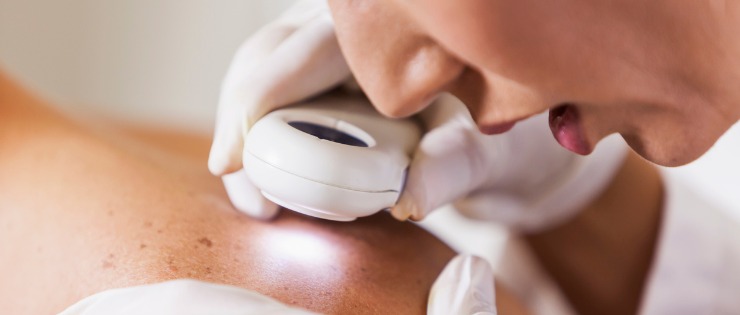
Ovarian
A review of several studies concluded that green tea consumption can reduce the risk of developing ovarian cancer.
Tea’s polyphenols can down-regulate the expression of tumour genes, induce tumour cell apoptosis, block tumour cell cycle, up-regulate the body metabolism, and remove excess free radicals, which all help prevent and inhibit tumours.
Colorectal
It’s estimated that one in six Inflammatory Bowel Disorder (IBD) patients will develop colorectal cancer. Studies have shown that tea consumption has a protective effect on gastrointestinal health and malignancies. Researchers have linked green tea to inhibiting inflammatory responses and carcinogen-induced gastrointestinal tumours in rodents.
Esophageal & Lung
Animal studies have shown green tea extract and green tea polyphenols have been inhibitory against tumours at different organ sites including the esophagus and lung. However, the protective effects in humans remains inconclusive.
Pancreatic
A study has reported that EGCG changed the metabolism of pancreatic cancer cells by suppressing the expression of a cancer associated enzyme, LDHA. The enzyme is critical in cancer metabolism so by disrupting it, we may prevent or change the course of the cancer.
Prostrate
While animal studies show green tea has chemopreventive and therapeutic effects that may help prevent prostate cancer, there is no established evidence that it’s effective in humans. Further large-scale human studies are required.
Stomach
A Japanese review of cohort and case-controlled studies showed a weak inverse association between green tea intake and a decreased risk of gastric cancer in women however there was insufficient evidence to show men could benefit from consuming green tea to reduce their risk.
Weight Loss
A Taiwanese study revealed those people who drank green tea for 10 years had a lower body fat composition and smaller waist to hip ratio.
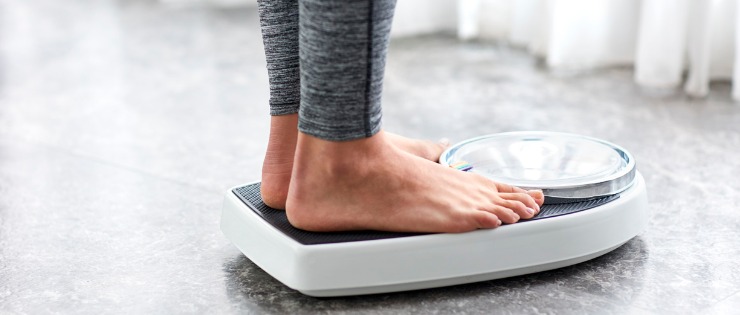
Another study in 2010 reported that green tea supplements containing caffeine and catechin were effective in the battle against the bulge. The hype resulted in caffeine rich supplements hitting the market. But a more recent review of the clinical use of green tea to stimulate weight loss hasn’t been as positive. While the review found green tea had a positive impact on weight loss, it wasn’t significant and unlikely to be of clinical importance. Other weight loss methods have far greater benefits.
How Much Green Tea is Too Much?
Like anything, you can have too much of a good thing. Green tea contains caffeine which can increase heart rate, blood pressure, alertness, can cause tremors and acts as a diuretic. Excessive consumption of caffeine can be extremely dangerous.
The flavonoids in tea are excellent antioxidants that protect cells from free radical damage. But too much can reduce the body’s ability to absorb iron which can lead to anaemia or a bleeding disorder. The tannins in green tea can reduce absorption of the B vitamin, folic acid.
Even though there is less caffeine in green tea than black, it can still be a problem particularly if you’re sensitive to caffeine.
Adult Consumption of Green Tea
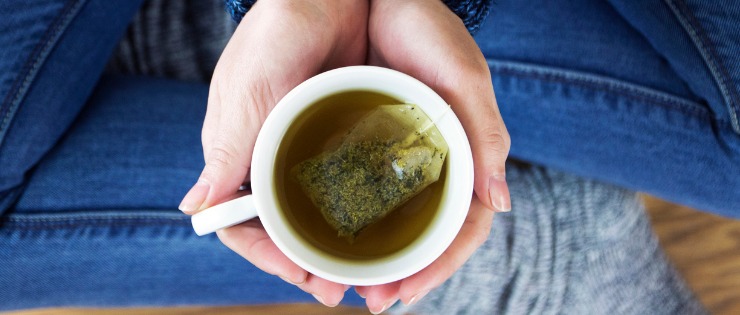
The recommended consumption of green tea is two to three cups per day, 240 to 320 mg of polyphenols. But some sources say drinking five cups of green tea per day won’t cause adverse effects. Pregnant and breastfeeding women shouldn’t drink over two cups per day. Research suggests 100 to 704 mg of green tea extract is recommended.
Consumption of Green Tea by Children
Little research has been conducted into the effects of green tea consumption by children, so green tea isn’t recommended for children.
Potential Interactions with Green Tea
Because of the herbal properties of green tea, it has the potential to interact with medications and natural therapies. Herbs such as green tea contain active ingredients that can trigger side effects.
Below are some of the medications that can interact with green tea and cause adverse effects. Consumers should consult their GP before taking any new medications if they drink green tea regularly.
Blood Thinning Medications
Green tea’s vitamin K can make blood thinning medications like Warfarin ineffective. Green tea can also slow blood clotting and increase blood-thinning properties of these medications.
Aspirin also prevents blood from clotting and taking aspirin and green tea together can increase the risk of bleeding. If your GP prescribes any blood thinning medications, be sure to mention you drink green tea.
Chemotherapy
Laboratory tests on animals have shown common chemotherapy drugs, doxorubicin and tamoxifen, can be too effective if the patient also consumes green tea. All patients taking chemotherapy drugs should speak to their doctor if they drink green or black tea or take tea extracts.
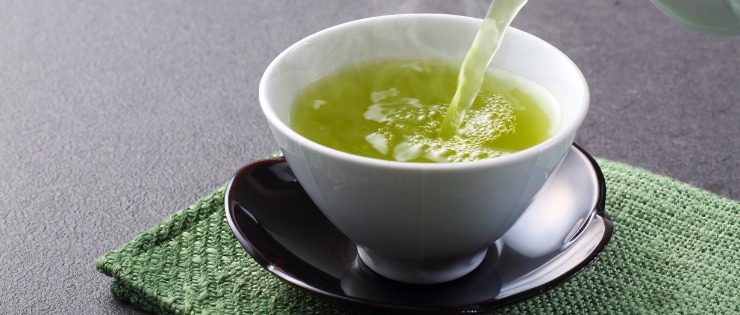
Benzodiazepines
Caffeine can affect medications for treating anxiety such as Diazepam (Valium) and Lorazepam, including the caffeine in green tea. Caffeine can reduce the sedative effect.
Birth Control Pills
The body naturally breaks down the caffeine in green tea, but when taking birth control pills, it can decrease the rate that the body takes to break down the caffeine. It can cause headaches, jitteriness, rapid heartbeat, and other side effects.
Ephedrine
If taking ephedrine, it’s possible that green tea can cause agitation, tremors, weight loss and insomnia.
Lithium
Used to treat bipolar disorder, lithium can be less effective if taken with green tea.
Phenylpropanolamine
Found in most over the counter cold and flu medications and some weight loss products, Phenylpropanolamine can interact with caffeine to cause mania and severe increases in blood pressure. The FDA issued a warning about Phenylpropanolamine after scientists at Yale University uncovered a link between an increased risk of stroke amongst women using the drug for weight loss or nasal decongestant, particularly in the first three days of use.
Quinolone Antibiotics
Several antibiotics can be more effective with green tea and also increase the risk of side effects.
Other Medications
A wide range of other medications can adversely interact with green tea. Green tea can impact everything from Estrogen.
So if you enjoy multiple cups of green tea or you’re thinking of taking a green tea extract, talk to your doctor whenever you’re prescribed new medications.
Otherwise, sit back and enjoy your brew. It’s quite possible your green tea could be improving your health. More research and time will tell.